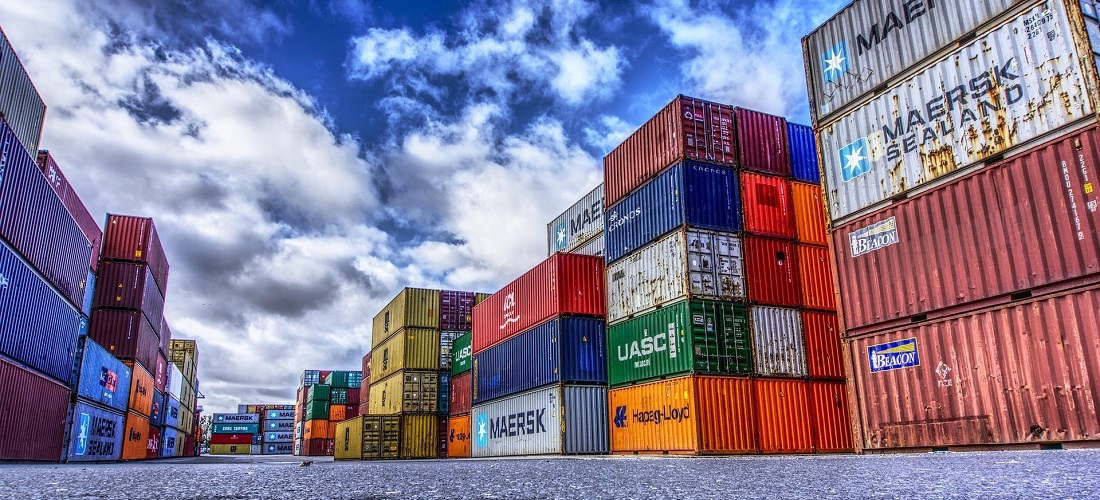
Brazil’s August Imports Surge, Pointing to a Reduced 2024 Trade Surplus
Sep, 06, 2024 Posted by Gabriel MalheirosWeek 202436
Brazil’s trade balance in August revealed a drop in exports and a rise in imports, with the latter revving more than initially expected in recent months. This shift is prompting forecasts of a smaller yet still significant trade surplus for 2024, contributing positively to the country’s balance of payments.
According to the Foreign Trade Secretariat (Secex/Mdic), Brazil recorded a trade surplus of $4.83 billion in August, with $29.1 billion in exports and $24.3 billion in imports. Export revenues fell 6.5%, while imports increased 13% compared to the same month in 2023.
From January to August, the trade surplus reached $54.1 billion. Exports totaled $227 billion, growing 1.1%, though at a slower pace than imports, which amounted to $172.9 billion, up 6.6% compared to the same period in 2023.
Below is a comparison of Brazilian container imports for the first half of the year over the last four years. The data is from DataLiner:
Brazilian Containerized Imports | Jan-Jul 2021 – Jan-Jul 2024 | TEUs
Source: DataLiner (click here to request a demo)
The lower-than-expected August surplus has led to downward revisions in projections for the coming months due to the “stronger momentum in imports,” according to Gabriela Faria, an economist at Tendências Consultoria. The consultancy’s projection for the 2024 trade surplus has been revised from $87.1 billion to $74.6 billion. Secex estimates a surplus of $79.2 billion for this year.
“Even considering the decline in intermediate and consumer goods prices, the volume of imports will likely remain positive, driven by strong domestic demand. Increased consumption is boosting industrial production, particularly in durable consumer goods and capital goods, supported by rising income and improved household financial conditions,” Faria said.
Herlon Brandão, Director of Foreign Trade Statistics and Studies at Mdic, noted that import growth has been “accelerating” throughout the year, driven by increased income and domestic production. One positive development has been the rise in capital goods imports, signaling “future investment commitments.”
“The rise in imports could pick up steam on positive economic indicators,” said Welber Barral, a partner at BMJ and former Secretary of Foreign Trade. Imports of inputs, machinery, and equipment stood out from January to August. Secex data shows that capital goods imports rose 18% in value and 22.1% in volume during that period compared to the same months in 2023. Intermediate goods imports increased 2.5% in value and 13.6% in volume. “This is fundamentally tied to GDP growth, but it will likely impact the trade balance by the end of the year.”
Barral added that lower trade surpluses are expected in the coming months. For 2024, he projects a surplus of “at least $80 billion, a favorable outcome for the balance of payments.”
Secex data also shows a 28.9% increase in consumer goods imports through August. José Augusto de Castro, from the Brazilian Foreign Trade Association (AEB), noted that this surge was primarily driven by Chinese vehicle imports in the first half of the year, with shipments anticipated ahead of an import tariff increase, though it has since slowed in July and August.
According to Secex data, Chinese vehicle imports reached $1.44 billion in June but fell to $102.2 million in July and $138.8 million in August.
“Clearly, imports overall remain strong. The question in Brazil is whether we will continue importing at this pace or shift more focus to domestic production,” Castro said. He pointed out that even an unfavorable exchange rate has not been enough to deter imports.
Meanwhile, exports are losing steam, particularly with the seasonal decline in soybean shipments, which are expected to decrease further in the coming months. “Corn has also seen a more significant drop, and grain prices have fallen sharply. We don’t see much potential for an increase, so the trend is for these lower prices to persist through the end of the year or into next year,” Castro added.
Secex data shows that soybean prices fell 12.8% in August, while corn prices dropped 18.2%. In the extractive sector, the declines were smaller but still higher than expected for the period. Oil prices fell 6%, and iron ore prices dropped 6.1%, all compared to the same month in 2023.
“The power of imports and the weakness of exports made August’s trade balance the lowest of 2024,” Castro said. AEB currently estimates a trade surplus of $77 billion for 2024, down from an initial projection of $86.5 billion.
Brandão from Secex noted that the 6.5% drop in total export value in August was mainly due to a 6.5% decline in export volume. The largest negative impacts came from iron ore and soybeans, which saw declines of 13.7% and 16.4%, respectively, compared to August 2023. Despite the August drop, Brandão highlighted that exports reached a new record value for the January-to-August period.
China remains Brazil’s top export destination, absorbing 30.5% of all goods sold abroad from January to August. As a result, Brazil’s trade balance, both in imports and exports, is heavily influenced by developments in China, Castro noted.
“Currently, with excess stock in several products, China is selling at very low prices on the market, which will impact the future. We don’t know to what extent, at what price level, or in what quantities.” Castro cited steel as an example, noting that China’s large inventories are affecting its demand for iron ore, one of Brazil’s key export products.
Source: Valor Econômico
Click here to read access the original reporting: https://valor.globo.com/brasil/noticia/2024/09/06/importacao-do-brasil-segue-em-alta-em-agosto-e-sinaliza-superavit-menor-em-2024.ghtml
-
Ports and Terminals
Mar, 01, 2021
0
Santos Brasil to auction fuel terminal at Port of Itaqui in April
-
DW 2020 EN
Jun, 15, 2020
0
DATAMARWEEK 16 JUNE 2020
-
Coffee
Dec, 21, 2018
0
Brazil forecast to produce 61.7m bags of coffee in 2018/19 crop year
-
Grains
Nov, 30, 2023
0
Dubai weighs infrastructure investments in northern Brazil to boost agricultural shipments

